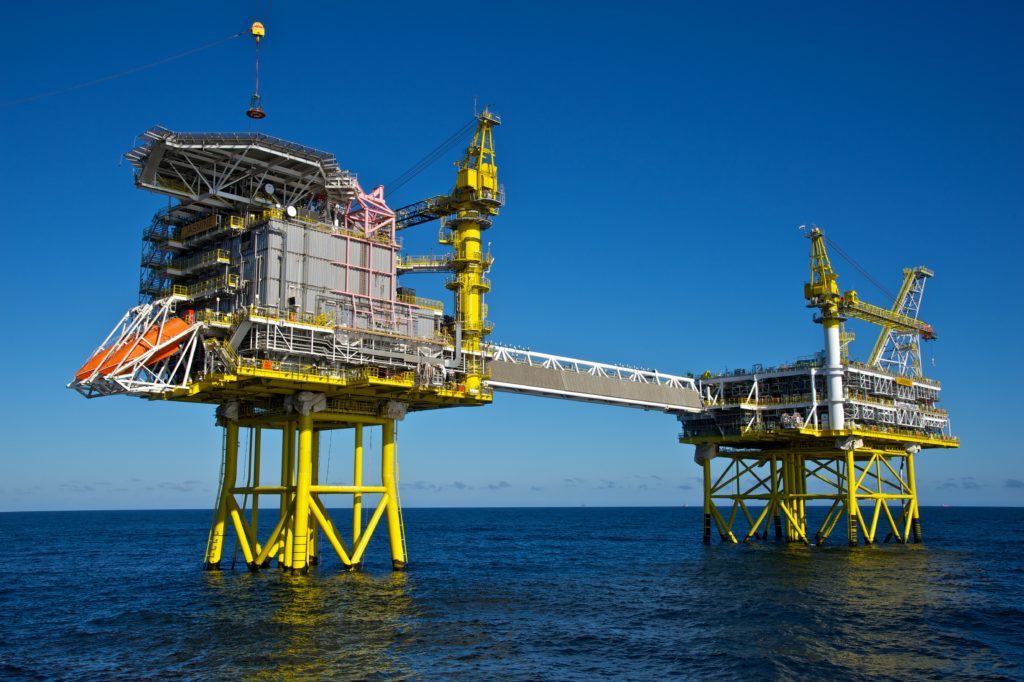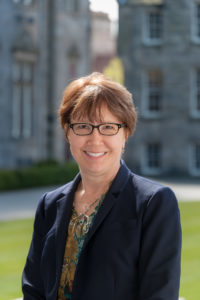
The UK president of ConocoPhillips tells Mark Lammey that good leaders can transform businesses – if they’re humble
The status quo is “not good enough” for Terri King, the UK president of ConocoPhillips.
The North Sea leader, who has been in the role since January 2017, believes the US major can do better.
For that to happen, ConocoPhillips needs to engage its workforce at all levels by creating a safe place to have open conversations.
“Good leaders are good listeners,” Ms King said. “If leaders can be humble and listen to people there is an opportunity to transform the business.”
The company already has high standards.
Ms King pointed out that in the Oil and Gas Authority’s stewardship survey, which was published last year and which used 2016 figures, ConocoPhillips was the best in the UK in terms of unit costs.
But she acknowledges the challenge will not go away, though ConocoPhillips is continuing to make headway.
The business has been steadfastly focusing on “increasing its competitiveness” in the North Sea.
“The challenge is complex,” Ms King said. “Here we’ve got ageing assets and declining production.
“But ConocoPhillips has been actively improving its unit costs.”
Ms King has experienced the North Sea before, having worked on the other side of the dividing line – in the Norwegian continental shelf – from 2005-08.
“The North Sea has changed a lot, particularly in terms of product prices,” Ms King observed.
“When you come to the North Sea and think about those changes, you have to remember the world in which the UK is sitting. You’re trying to attract
capital in a very competitive landscape.
“We launched a project called UK Challenge with the motto ‘everyone is responsible’ and we are using that as a structured programme to improve business efficiency.
“We are successfully attracting capital to the UK.”
That capital means ConocoPhillips can go after more North Sea oil and gas.
Ms King said a drilling programme is ongoing in the central North Sea “J-Area”, which consists of the Jade, Jasmine, Joanne and Judy fields.
The business also has plans for drilling on the Britannia field satellites, 130 miles north-east of Aberdeen. ConocoPhillips is the operator of the Brodgar, Callanish and Enochdhu fields there, and expects drilling to start in 2019.
The firm’s other UK North Sea interests include a 24% stake in the BP-operated Clair Ridge project, which is expected to produce first oil west of Shetland later this year.
In addition, the business submitted bids for acreage in the 30th UKCS licensing round, the results of which are due to be announced in the second quarter of 2018.
In 2017, ConocoPhillips UK produced around 5% of the group’s total oil and gas production.
“We have a lot of work under way in the UK,” Ms King summarised.
And there is scope for yet more activity, with ConocoPhillips backing the Oil and Gas Authority’s call for strategies to make sure existing hubs have a long life.
What’s more, ConocoPhillips is among the companies looking to unlock the potential of small pools in the North Sea, and not just those near its own, existing infrastructure.
Ms King believes small pools represent a “big opportunity” and said ConocoPhillips was involved in the Oil and Gas Technology Centre’s recently announced initiative to deliver 400million additional barrels from marginal fields.
ConocoPhillips is also facing up to its responsibility for safely disposing of ageing assets.
Last year, the company submitted draft proposals covering three platforms and associated pipelines in the satellite area of the Lincolnshire Offshore Gas Gathering System (LOGGS).
In its decommissioning programme, the company said it wanted to fully remove the Vulcan UR, Viscount VO and Vampire OD topsides and their jackets for recycling.
They are all tied back to the LOGGS complex off the coast of Lincolnshire.
So, having an experienced engineer at the helm might come in handy.
Ms King cut her teeth as a reservoir engineer, and took on responsibility for planning and portfolio management for ConocoPhillips in the US.
She led exploration and development teams, carrying out engineering and operations management in the Eagle Ford and Permian basins.
Her eyes were opened to the opportunities a career in oil and gas could provide while studying at a senior school which had a programme focusing on stem subjects.
Ms King’s father also encouraged her to consider a career in engineering.
He worked in human resources, which gave him an impression of how people in the trade got by.
Ms King said: “My dad and I were talking, and he said, ‘I’ve noticed those engineers seem happy. They seem to be able to go to work and solve their problems. For us in HR, it’s not as easy to fix our problems.”
However, Ms King soon found out her father’s observation was simplistic.
“The job of engineer was not as simple as dad described,” she said. “When I started I found out it’s about how the team works together that’s most important.”
Ms King recalls being one of few women in the oil and gas industry when she started her career in the first half of the 1980s.
“People were welcoming,” she said. “It was a very respectful environment in which to work.
“There were fewer women, so I had high visibility. That meant if I met someone, they’d remember me, so I’d have to try hard to remember them.
“Visibility is good if you are doing a good job.”
Women are becoming more visible at ConocoPhillips as the years go by. At present, 19% of employees at the UK business are female, while 38% of new graduate recruits over the last five years have been women.
Four of ConocoPhillips’ 12 board members are women and the leadership team had about the same proportion.
Flexible working opportunities are there for the taking for staff members at all levels. About a fifth of the female UK workforce has adopted flexible working. Five percent of all UK employees work part-time at ConocoPhillips.
Echoing the sentiments of many of the business leaders interviewed for this publication, Ms King said the emphasis had to be placed on retaining those women for the next 20 or 30 years.
“That’s the challenge for industry,” Ms King said. “We are committed to giving women the same level of opportunity.
“That means focusing on the basics and making inclusion a priority in our existing processes.”
The company started “inclusion training” last year in the UK to help improve its employees’ awareness of their “unconscious biases”.
ConocoPhillips UK also has various support networks with thousands of employees from all levels represented.
“You need to adopt a specific approach if you want to change something,” Ms King said.
“I appreciate this topic being brought forward, because if we want to solve the problem we first have to acknowledge it.
“Then we need to build data to better understand the issue.”
With that in mind, ConocoPhillips is putting together information for gender pay reporting, which will be published in the next couple of months.
As the mother of two children, Ms King knows where the priorities should lie.
“I’ve had a lot of fun at work, but raising kids has to be biggest joy in life,” she said.
“To be able to pursue both is a real positive reflection. It’s good to be able to look back and see that those two things do not have to be mutually exclusive.
“We need to make that combination work for young women.”
Recommended for you


